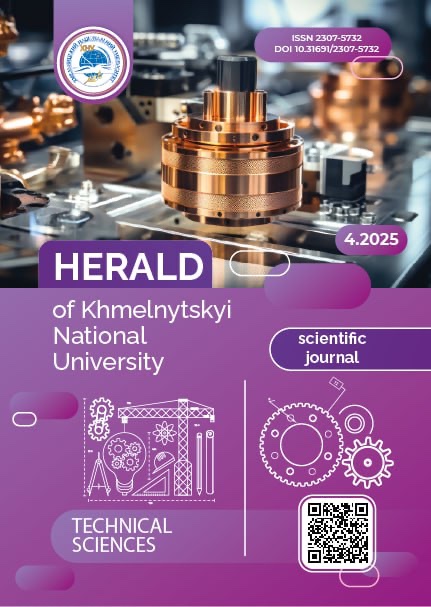DEVELOPMENT OF A MATHEMATICAL MODEL WITH FUZZY LOGIC AND INTEGRATION OF PUBLIC TRANSPORT SCHEDULES
DOI:
https://doi.org/10.31891/2307-5732-2025-355-12Keywords:
multi-agent system, traffic management, fuzzy logic, adaptive signal control, public transport priorityAbstract
The effective management of urban traffic flow requires models capable of adapting to dynamic changes in vehicle density and integrating the priorities of both private and public transport modes. Traditional centralized control systems often lack flexibility in reacting to unforeseen congestion or schedule deviations of public transport vehicles. This study presents a mathematical model of decentralized multi-agent traffic management that integrates fuzzy logic and public transport schedule data into the decision-making process of adaptive traffic light control systems. Each intersection is modeled as an autonomous agent that communicates with neighboring agents to exchange key traffic variables, including queue lengths and priority indices for public transport. The fuzzy logic component allows for handling uncertainties inherent in traffic flow by applying linguistic variables such as “low,” “medium,” and “high” congestion levels, enabling a human-like assessment of traffic states rather than relying on rigid numerical thresholds. A specific focus is given to the integration of a priority index, calculated from deviations between actual and scheduled arrival times of public transport vehicles, combined with vehicle capacity metrics. This priority index dynamically influences the extension or shortening of green light phases to reduce delays for buses and trams while minimizing the impact on private vehicles. The model also accounts for the propagation of congestion effects by incorporating aggregated state variables from adjacent intersections, supporting proactive adjustments to signal timings to prevent gridlock. Simulation-based validation demonstrates that the proposed model reduces average delays for public transport by 12–18% during peak periods and improves overall traffic flow stability by facilitating decentralized coordination without the need for centralized control systems. The integration of fuzzy logic and multi-agent communication protocols offers a scalable and adaptable framework for future smart city traffic management solutions, capable of integrating additional data sources such as real-time GPS tracking and vehicle-to-infrastructure communication technologies.
Downloads
Published
Issue
Section
License
Copyright (c) 2025 ВЛАДИСЛАВ ГАНДРИБІДА (Автор)

This work is licensed under a Creative Commons Attribution 4.0 International License.

